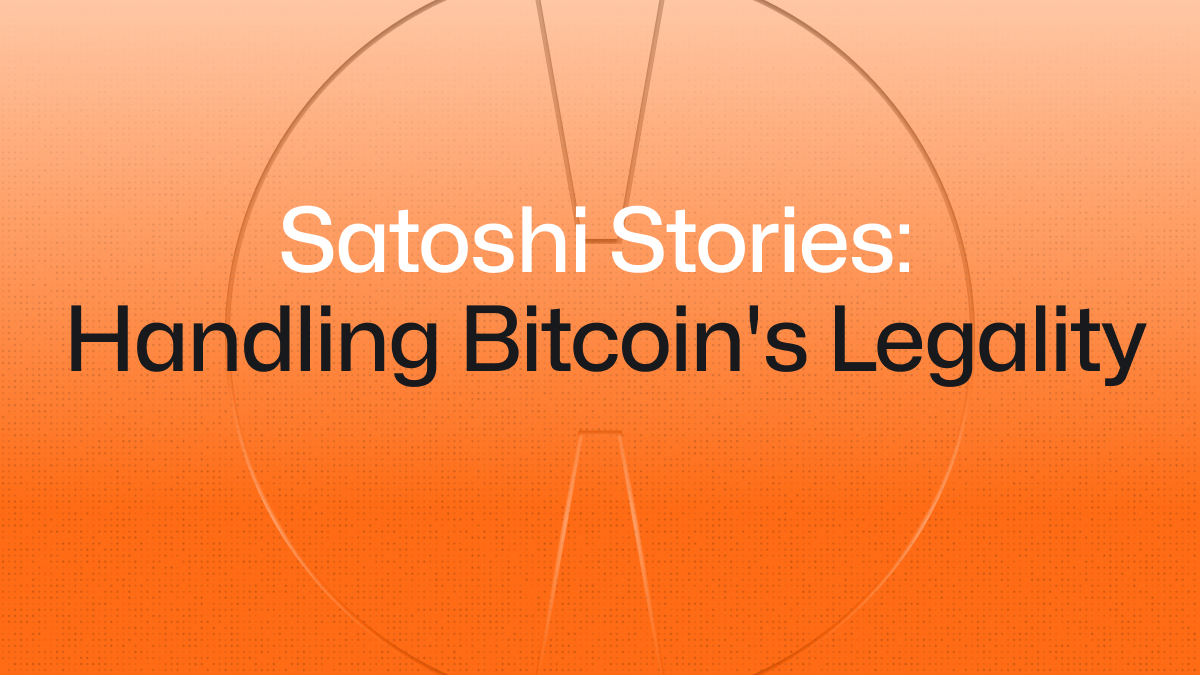- Announcements
- September 24, 2024
Satoshi Stories: Handling Bitcoin’s Legality
Bitcoin OG Jeff Garzik talks about how Satoshi thought about Bitcoin.

In this video, Jeff Garzik discusses the legal questions surrounding Bitcoin in its early days, especially before the first Bitcoin Senate hearings in March 2013. At that time, there was uncertainty over whether creating Bitcoin violated laws like the Stamp Act, since it involved creating a form of money out of thin air.
Jeff explains that one of the key differences in the U.S. legal system is that, unlike countries like China or Russia, U.S. law does not require the exclusive use of the national currency. This allowed some room for private currencies, like Bitcoin, to emerge legally.
Jeff reflects on the historical precedent of private banks issuing their own money in the U.S. during the 1800s, some of which were successful while others failed. This history gave Bitcoin developers some confidence, but there was still uncertainty about whether they could be held liable for the use of Bitcoin in illicit transactions they had no control over.
Even today, in 2024, there are ongoing legal debates about the liability of software developers in cases like Tornado Cash. He also touches on the evolving regulatory landscape, noting that back in 2010, developers didn’t know if Bitcoin would be classified as a security, commodity, or currency.
Different countries took varying approaches, with Japan leading the way by regulating Bitcoin as a currency, while countries like China and Russia either banned or heavily restricted its use. Despite this, Bitcoin’s underground use continues in many of these regions.
About the Series
Satoshi Stories is a fascinating deep dive into the history of Bitcoin told by Bitcoin Core Developer Jeff Garzik. Jeff was there at the beginning of Bitcoin’s rise and eventual domination of the cryptocurrency world and his experience working with Satoshi in those early years offers important and fascinating insights into the technology.